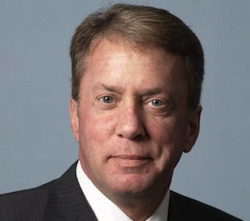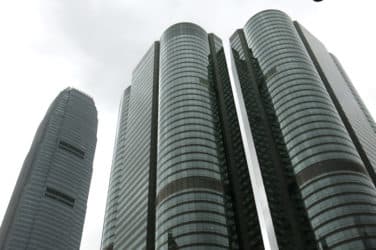
High-frequency trading in the futures markets has been a hot topic for at least a few years now, and many of the arguments pro and con were aired in a Senate hearing this week.
“High-frequency trading has been the focus of substantial negative comments—much of which has been based on misinformation when it comes to futures markets,” said Terry Duffy, executive chairman and president of CME Group. “I strongly agree with regulators — in both the futures and equities markets — that the financial markets are not rigged. To the contrary, the futures markets today are more open and accessible than ever before.”
Futures markets have evolved from a floor-based model to an electronic model at the demand of customers, who seek immediate execution and confirmation, Duffy said. CME Group has responded to its diverse and global customer base including banks, hedge funds, asset managers, corporations, farmers and ranchers, commercial producers and merchandisers, and other constituents, he said.

Terry Duffy, CME Group
“Our innovative implementation of electronic trading opened the markets in a profound way,” Duffy said. “It increased liquidity and tightened bid/ask spreads to the benefit of our customers. They rely on deep liquid markets to achieve their risk management and investment objectives.”
Sanjay Shah, chief technology officer of Nanospeed, which provides low latency, FPGA-based trading, market data and risk management systems, told Markets Media, “I concur with Duffy that HFT brings increased liquidity and tightened bid/ask spreads to the benefit of everyone. I also agree that as the largest derivatives exchange, CME is a good example of using technology to maintain a level playing field.”
With FPGA technology, “HFT trading firms are encouraged to do more pre-trade risk checks, because there is virtually no time penalty to pay,” said Shah. “This is an example of technology and regulation working in tandem.”
At the hearing, Andrei Kirilenko, professor at MIT Sloan School of Management and a former CFTC chief economist, said that the competitive environment in which HFTs interact may prevent improvements in market quality from being fully realized.
“With limited competition from new entrants to engage incumbent HFTs, we may not be seeing the gains in market quality that we would otherwise see,” he said. “A concentrated environment can also lead to socially inefficient investment in faster technology, as small increases in trading speed lead to large payouts, driving an arms race for seemingly small reductions in latency.”
Shah said that the Commodity Futures Trading Commission “by and large strikes the right balance of regulating the market without inhibiting technology. They are a good example of working with technology vendors and exchanges. However, they may need more investment in technology for surveillance of persistent patterns in data that may point to some trading irregularities.”
Since effective regulation of automated markets requires expertise in technology, finance, and data processing, regulators need to develop capacity along all of these lines. “One of the main reasons I went to MIT after leaving the CFTC is to build this capacity for the regulators and the public,” said Kirilenko.
“The age when a regulator could rely on an overheard conversation to begin an investigation is over,” said Kirilenko. “Algorithms don’t brag on the phone that they just “hammered the market” or send text messages to their girlfriends about how “fabulous” they are. To catch a manipulative or disruptive behavior of an algorithm, regulators need to have the technological tools to sift through communication and trading patterns among the new inhabitants of the market place – the machines.”
Featured image via Alexey Klementie/Dollar Photo Club





